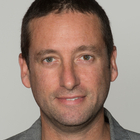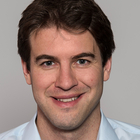Externe Publikationen

Putting your money where your mouth is: geographic targeting of World Bank projects to the bottom 40 percent
Öhler, Hannes / Mario Negre / Lodewijk Smets / Renzo Massari / Željko BogetićExterne Publikationen (2019)
in: PLOS One 14(6), e0218671
DOI: https://doi.org/10.1371/journal.pone.0218671
Volltext/Document
The adoption of the shared prosperity goal by the World Bank in 2013 and Sustainable Development Goal 10, on inequality, by the United Nations in 2015 should strengthen the focus of development interventions and cooperation on the income growth of the bottom 40 percent of the income distribution. This paper contributes to the incipient literature on within-country allocations of development institutions and assesses the geographic targeting of World Bank projects to the bottom 40 percent. Bivariate correlations between the allocation of project funding approved over 2005–14 and the geographical distribution of the bottom 40 as measured by survey income or consumption data are complemented by regressions with population and other potential factors affecting the within-country allocations as controls. The correlation analysis shows that, of the 58 countries in the sample, 41 exhibit a positive correlation between the shares of the bottom 40 and World Bank funding, and, in almost half of these, the correlation is above 0.5. Slightly more than a quarter of the countries, mostly in Sub-Saharan Africa, exhibit a negative correlation. The regression analysis shows that, once one controls for population, the correlation between the bottom 40 and World Bank funding switches sign and becomes significant and negative on average. This is entirely driven by Sub-Saharan Africa and not observed in the other regions. Hence, the significant and positive correlation in the estimations without controlling for population suggests that World Bank project funding is concentrated in administrative areas in which more people live (including the bottom 40) rather than in poorer administrative areas. Furthermore, capital cities receive disproportionally high shares of World Bank funding on average.
Kontakt
Cornelia Hornschild
Koordinatorin Publikationen
E-Mail Cornelia.Hornschild@idos-research.de
Telefon +49 (0)228 94927-135
Fax +49 (0)228 94927-130
Alexandra Fante
Bibliothekarin/Open Access-Koordinatorin
E-Mail Alexandra.Fante@idos-research.de
Telefon +49 (0)228 94927-321
Fax +49 (0)228 94927-130




